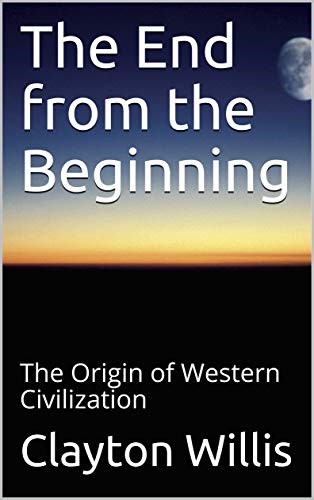Ten Commandments versus the “law of Moses”
There is much confusion among Christians, especially those who have paid scant attention to the study of the Old Testament scriptures, concerning the Torah — the first five books of the Old Testament canon — Genesis, Exodus, Leviticus, Numbers and Deuteronomy.
On the one hand, many of their teachers and preachers tell them that the Old Covenant has been “done away with” or “no longer applies” to those living under the New Covenant Jesus established. Since that is true, and many of those preachers and teachers include the Ten Commandments in that statement (which is not true!), confusion reigns.
Much of the confusion is caused by the assertion that the Fourth Commandment mandates holding church services (a “sacred assembly”) on the Sabbath. The Sabbath is generally discerned to be Saturday, with those who want count time as they did throughout the Bible times correctly assert that time frame to be Friday at sunset to Saturday at sunset.
That is the time observed by Jews who attempt to adhere to the teaching of the Torah and by Seventh Day Adventists and several smaller Christian organizations.
The majority of today’s Christian churches hold their worship services on Sundays. That tradition is the result of the Christian church leaders in the second and third centuries of our common era (who eventually formed the hierarchy of the Catholic Church) establishing Sunday as the day for weekly sacred assemblies.
The main reason for that change was to eliminate any connection with their Christian congregations and the Jews whose teaching they felt would conflict with the doctrines of those Christian leaders.
Though the Catholic Church readily admits there is no Biblical foundation for that practice, they hold it as a “sign” that they are God’s true church because even Protestant organizations follow their ruling in this matter.
As our essay on the Fourth Commandment points out, that Commandment does not mandate a sacred assembly on any day. Think of all the arguments, turmoil and conflict that could have been avoided if only the preachers and teachers had read the Fourth Commandment more closely; if only they had discerned the difference between the Ten Commandments and the “law of Moses”!
Since Jesus told an inquiring young man as well as an “expert” in the law that one desiring to “inherit eternal life” should observe the Ten Commandments, discerning the difference between the “law of Moses” and the Ten Commandments should be most important to Christians.
In this essay, I share my understanding of this subject.
The 10 Commandments are God’s laws spoken in His own voice and were NOT given THROUGH Moses. When He finished speaking the 10th Commandment, the scriptures say, “and He added nothing more” [Deuteronomy 5:22]. Why nothing more? Because those Ten Commandments are the only laws needed by mankind to develop a perfect society.
Though God wrote the Commandments with His own finger and gave those tablets to Moses to be placed in the Ark, the Ten Commandments were given directly to the Israelites and through them to us.
The laws of the Old Covenant God made with the Israelites at Mount Sinai [Exodus 20:22 – 24:3; Leviticus chapter 26; Deuteronomy 29:1–30:20] WERE given THROUGH Moses – that’s why that Covenant and its laws are called the “law of Moses”. When Moses read these laws to the Israelites, they agreed to obey those laws and Moses wrote them down for the children of Israel.
3 When Moses went and told the people all the Lord’s words and laws, they responded with one voice, “Everything the Lord has said we will do.” 4 Moses then wrote down everything the Lord had said. He got up early the next morning and built an altar at the foot of the mountain and set up twelve stone pillars representing the twelve tribes of Israel. Exodus 24:3–4 (NIV84)
46 These are the decrees, the laws and the regulations that the Lord established on Mount Sinai between himself and the Israelites through Moses. Leviticus 26:46 (NIV84)
24 And it came to pass, when Moses had made an end of writing the words of this law in a book, until they were finished, 25 That Moses commanded the Levites, which bare the ark of the covenant of the Lord, saying, 26 Take this book of the law, and put it in the side of the ark of the covenant of the Lord your God, that it may be there for a witness against thee. Deuteronomy 31:24–26 (KJV 1900)
The Ten Commandments were placed INSIDE the Ark of the Covenant; the “law of Moses” was placed “in the side” or “beside” the Ark – not inside like the Ten Commandments.
Whereas, the Ten Commandments were given in God’s own voice directly to the children of Israel to specify the meaning of “sin”. That is their purpose as Paul wrote:
7 What shall we say, then? Is the law sin? Certainly not! Indeed I would not have known what sin was except through the law. For I would not have known what coveting really was if the law had not said, “Do not covet.” Romans 7:7 (NIV84)
The Ten Commandments are God’s Holy Laws and apply to all times – from Creation to the coming Kingdom of God sometime in our future.
17 “Do not think that I have come to abolish the Law or the Prophets; I have not come to abolish them but to fulfill them. 18 I tell you the truth, until heaven and earth disappear, not the smallest letter, not the least stroke of a pen, will by any means disappear from the Law until everything is accomplished. 19 Anyone who breaks one of the least of these commandments and teaches others to do the same will be called least in the kingdom of heaven, but whoever practices and teaches these commands will be called great in the kingdom of heaven. Matthew 5:17–19 (NIV84)
Of course, the Ten Commandments also applied during the time of the “law of Moses”.
If you read the Torah carefully, you’ll see that though God is giving the laws that make up the “law of Moses”, each of the laws are given THROUGH a mediator (Moses). For instance, look at introduction to the laws governing the holy days and festivals mandated under “the law of Moses”:
1 The Lord said to Moses, 2 “Speak to the Israelites and say to them: ‘These are my appointed feasts, the appointed feasts of the Lord, which you are to proclaim as sacred assemblies. Leviticus 23:1–2 (NIV84)
Each of the laws has a similar preface: God said to Moses, tell the Israelites ……..
Here are some of the laws and ordinances that were “added” by the “law of Moses”:
- The Levitical Priesthood
- Animal sacrifices
- Mandated weekly Sabbath observance with a “sacred assembly”
- The 7 “high Sabbaths” and the three annual Festivals (Passover/Feast of Unleavened Bread; Pentecost/The Feast of Weeks and The Feast of Tabernacles)
- Designation of clean and unclean foods
- Various other rituals and sacrifices
- The civic laws governing the nation of Israel
Though the “law of Moses” was “holy, righteous and good”, it had served its purpose when it preserved the scriptures, history and prophecies and brought the nation of Israel down through the centuries (more than 1,400 years) to the “time of Christ” with the birth of our Lord and Savior, Jesus of Nazareth.
With the death, burial and resurrection of Jesus, a New Covenant was established and the “law of Moses” no longer has authority over God’s people. We have a new High Priest and the “mediator” of the New Covenant is Jesus.
6 But the ministry Jesus has received is as superior to theirs as the covenant of which he is mediator is superior to the old one, and it is founded on better promises.
7 For if there had been nothing wrong with that first covenant, no place would have been sought for another. 8 But God found fault with the people and said:
“The time is coming, declares the Lord, when I will make a new covenant with the house of Israel and with the house of Judah. 9 It will not be like the covenant I made with their forefathers when I took them by the hand to lead them out of Egypt, because they did not remain faithful to my covenant, and I turned away from them, declares the Lord.
10 This is the covenant I will make with the house of Israel after that time, declares the Lord. I will put my laws in their minds and write them on their hearts. I will be their God, and they will be my people. 11 No longer will a man teach his neighbor, or a man his brother, saying, ‘Know the Lord,’ because they will all know me, from the least of them to the greatest. 12 For I will forgive their wickedness and will remember their sins no more.”
13 By calling this covenant “new,” he has made the first one obsolete; and what is obsolete and aging will soon disappear. Hebrews 8:6–13 (NIV84) quoting Jeremiah 31:31–34
The Ten Commandments have always existed and will always be in force for God’s people.
2 By this we know that we love the children of God, when we love God and keep His commandments. 3 For this is the love of God, that we keep His commandments. And His commandments are not burdensome. 1 John 5:2–3 (NKJV)

